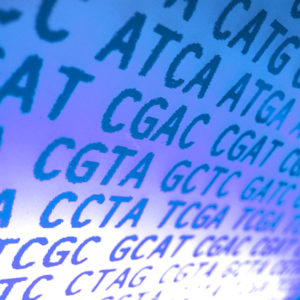Next Generation Sequencing Bioinformatics - Asia
3–8 November 2024
Monash University, Malaysia
Learn to analyse next generation sequence data to address a wide range of biological questions
Summary
In collaboration with the Monash University Malaysia Genomics Facility (MUMGF), we are delighted to offer this free to attend course on application of bioinformatics tools and resources in the analysis of next generation sequence data.
High throughput sequencing has gained widespread adoption as an essential experimental assay for biological research. Analysing high throughput sequencing data involves an array of different bioinformatics tools and techniques. Therefore, it is important for experimental scientists to have the bioinformatics skills required to effectively assess and analyse data produced by next generation sequencing.
This course aims to provide a hands-on introduction to bioinformatics for next generation sequencing and to equip participants with the essential informatics skills and knowledge required to begin analysing next generation sequencing data and carry out some of the most common types of analysis.
What will I learn?
The course programme will start with a history and overview of sequencing technologies and algorithmic theory and principles of bioinformatics, followed by intensive practical computational sessions using sequence analysis techniques and tools applicable to any species or genome size. A variety of applications will be covered from post-sequencing analysis (QC, alignment, assembly, variant calling) to RNA-Seq and data visualisation. Accompanying the lectures and practical sessions will be a series of seminars by invited speakers, who will highlight their cutting-edge work harnessing the power of next generation sequencing technologies to address a wide range of biological questions.
The course aims to provide a hands-on introduction to bioinformatics for next generation sequencing, and should not be considered a complete education in the theoretical and mathematical foundations of the topics.
*Please note: The practical sessions will be taught exclusively through Linux. Therefore, participants are required to have some familiarity with the Linux operating system. This will be essential for participants to fully benefit from the course. With this in mind, we will provide comprehensive pre-course material via our learning management system in the weeks immediately before the course. Additionally, there are numerous online introductory tutorials to the Linux operating system and command line, including:
http://www.ee.surrey.ac.uk/Teaching/Unix
http://swcarpentry.github.io/shell-novice/
Prerequisites
Applicants should be postdoctoral scientists, PhD students, junior faculty members or actively engaged in or soon to commence research involving next generation sequencing data analysis. The course will be taught in English.
Programme
Programme
The hands-on programme will cover several aspects of next generation sequencing data analysis, including lectures, discussions and practical computational sessions covering the following:
- Introduction to NGS technologies
- Introduction to the Linux command line
- Linux for bioinformatics
- NGS data formats and tools
- Sequence alignment+QC
- SNP/indel theory and practical
- Structural variation theory and practical
- RNA-seq analysis
- Sequencing data visualisation with the Integrated Genomics Viewer
- Genome assembly
- Bioinformatics workflow essentials
- Participant projects and presentations (final day)
Learning Outcomes
On completion of the course, participants can expect to have acquired:
- A working knowledge of the Linux command-line and advanced Linux commands for automating bioinformatics tasks
- Knowledge of how to do QC assessment of high throughput sequencing data
- Understanding of the algorithmic concepts behind short read alignment and variant calling, and practical experience using the software
- Experience analysing RNA-Seq data for measuring abundance
- Experience of developing bioinformatics workflows
Instructors and speakers
Scientific Organising Committee
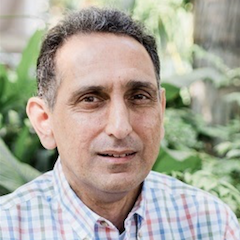
Qasim Ayub
Monash University, Malaysia
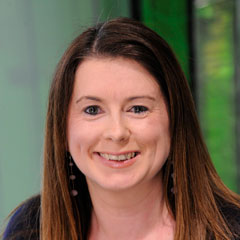
Jacqueline Keane
Wellcome Sanger Institute, UK

Thomas Keane
European Bioinfromatics Institute, UK
Instructors and Assistants
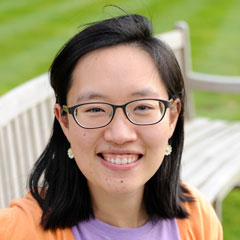
Arporn (Koi) Wangwiwatsin
Khon Kaen University, Thailand

Jingtao Lilue
Oujiang Laboratory, China
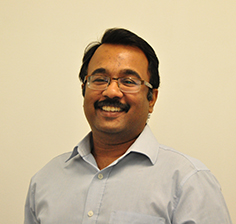
Adaikalavan Ramasamy
Genome Institute of Singapore

Aswini Leela Loganathan
Monash University, Malaysia
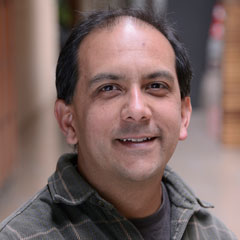
Vivek Iyer
Wellcome Sanger Institute, UK
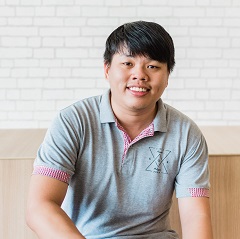
Wee Wei Yee (Gavin)
Monash University, Malaysia

Gokce Oguz
Genome Institute of Singapore

Hong Leong Cheah
Monash University, Malaysia
How to apply
Prerequisites
This course is open to applicants from Asia. Applicants should be postdoctoral scientists, senior PhD students, junior faculty members or clinicians/healthcare professionals actively engaged in or soon to commence research involving next generation sequencing data analysis. The course will be taught in English.
*Please note: The practical sessions will be taught exclusively through Unix/Linux. Therefore, participants are required to have some familiarity with the Linux operating system. This will be essential for participants to fully benefit from the course. There are numerous online introductory tutorials to the UNIX/Linux operating system and command line, including:
http://www.ee.surrey.ac.uk/Teaching/Unix
http://swcarpentry.github.io/shell-novice/
How to Apply
- Begin the Application Process
- Click on the “Apply” button above to start your application. Please note that places are limited and will be awarded based on merit.
- Demonstrate the Course’s Relevance to your project
- Our Global Training Courses are highly subscribed, so it is essential to clearly show how the skills you will learn in the course will be directly applicable and beneficial to your current role/project. Highlight how these skills will enhance your work or research. Preference will be given to applicants who have data to analyse or will soon have data to analyse.
- Supporting Recommendation
- Applications must be supported by a recommendation from a scientific or clinical sponsor (e.g., supervisor, line manager, or head of department). Ensure that your sponsor provides a tailored supporting statement by the application deadline. This statement must be uploaded as a PDF document to the registration system within your application. Applications without a supporting statement will not be considered.
- Need Help?
- If you encounter any problems with the online application process, please contact us for assistance.
Cost
Cost
The course is funded by Wellcome Connecting Science and is free to attend.
Bursaries
Bursaries are offered based on merit to assist with travel, accommodation, and living expenses during the course. To apply, please complete the “bursary” section on the course application form. Recipients will typically be informed of their award in conjunction with their course acceptance. Please keep in mind that both the applicant and sponsor must provide a justification for the bursary as part of the application process.
Accommodation services phishing scam – please be vigilant. More information.
Testimonials
Feedback from the 2019 Overseas NGS Bioinformatics courses:
“I appreciate the excellent the organizers and instructors, and I will recommend this course because I think that it applied a excellent method of teaching, which is learning by doing”.
“I thank you for being selected for the course and have the opportunity to learn about the NGS bioinformatics analysis and meet people from all over Latin America who work in the same area as me”.
“I have benefitted tremendously from this course. I am now able to perform some bioinformatics analyses on my sequencing reads and also provide some basic level of guidance to my colleagues”.
“The first day of networking and getting to know everyone was very helpful in breaking
the ice and getting comfortable”.
“I definitely enjoyed the real hands-on practical work, with necessary and sufficient time allocated
for it, and that we had more than enough instructors that could assist us”.
“The best thing about this course was focus given to practicals, the experience and knowledge of
the instructors, and the number and diversity of instructors”.
